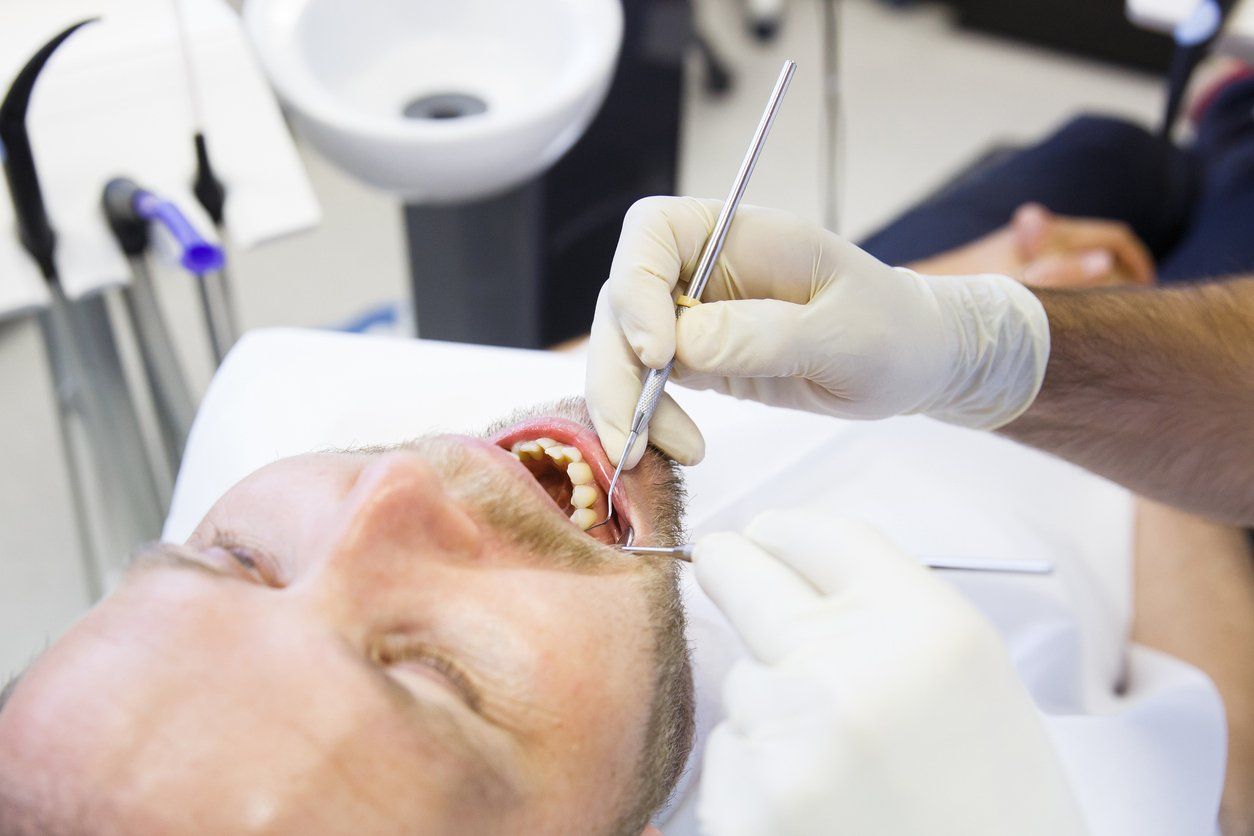Everything You Need to Know About Dental Crowns
Healthy, attractive teeth accomplish so much in our lives: they make us feel more confident , support our overall health , and contribute to a beautiful smile.
For some patients, dental crowns are an incredibly versatile and helpful solution for a variety of dental issues. From helping to protect your health in cases of a root canal or cover a cracked tooth — to simply providing you with a straighter smile — dental crowns can make all the difference for your dental health. Let's take a closer look.

What Are Dental Crowns?
Dental crowns have a long history. As far back as 4000 years agoin Southeast Asia, gold crowns were used by the social elite. Now, innovations in technique and materials have made dental crowns a simple, safe option for many patients.
Put simply, a dental crown is a prostheticthat can be placed over your existing tooth like a cap. Once placed, your crown will emulate the look and feel of your natural teeth, and blend right in with the rest of your smile. Since dental crowns can be made of different materials, it's important to talk to your dentist about what's right for you:
Gold alloy. In this type of crown, gold is mixed with other metals like copper. Gold doesn't wear away other teeth next to the crown, and it's considered very biocompatibleto the rest of your teeth.
Base metal. Crowns made of base metals are incredibly strong and resistant to corrosion. Because of their metallic appearance, they're often used for molars.
Porcelain-fused to metal. In this option, porcelain is fused to a metal structure, creating a very strong crown.
Ceramic or Porcelain. Many people like the look of all-ceramic and all-porcelain crowns. Because they resemble natural teeth so closely, they are a popular option for front teeth.
Why Do I Need to Get a Crown?
Because they so closely resemble your natural teeth in fit and appearance, crowns are an excellent option for both aesthetic and health reasons. Although everyone's situation is unique, many people get crownsin order to:
- Protect a tooth that's had a root canal
- Cover discolored or unattractive teeth for a brighter smile
- Cover a cavity that's too large for a filling
- Support a bridge or cover an implant
- Cover a tooth that's been cracked, decayed, or damaged in a trauma or injury
- Address worn down fillings
- Correct misaligned front teeth or get rid of spaces between teeth
- Cover teeth that have been worn down over time
In general, crowns are important for restoring regular function to your mouth. For example, if your teeth are extremely damaged and worn down, a crown can help you regain normal chewing and eating habits. Additionally, in cases like root canals, a crown protects your weakened toothfrom fracture and infection. Without intervention from a crown, worn fillings can attract bacteria and lead to further cavities.
Altogether, crowns are a great way to protect your teeth from damage and decay — while maintaining your bright and beautiful smile.
What Can I Expect During the Procedure?

Before you get your crown, your dental team is going to work with you to ensure that your teeth are in good condition. In many cases, this means that they'll fill any cavities you may have and help you treat gum disease if necessary. Once your teeth are healthy enough, it will be time for your crown procedure. Keep in mind that this often takes a couple of visits:
Step One: Preparing the Tooth
- Anesthesia. Your dentist will make sure that the area has been numbed so you won't feel any pain or discomfort.
- Trimming the tooth. In order to create a seamless fit with your gums and other teeth, you dentist has to trim the tooth down. If they find decay during shaping, your dentist will have to treat it before continuing.
- Building up the tooth. In some cases, treating a tooth for decay leaves it too small to support a crown. In other cases, it will be too small because of injury or erosion. Therefore, your dentist will use a composite resin to build the tooth up so it can support a crown.
- Impression. It's important to ensure that your crown fits perfectly in your mouth, so your dentist will take an impression of your tooth and the surrounding teeth — and use this information to have your crowns made.
- Temporary crown . Finally, your dentist will place a temporary crown while the permanent one is being created.
Step Two: Placing the Crown
Within a week or two of your initial appointment, your permanent crown should be ready to go. From here, the process is simple:
- Verify. First, your dentist will make sure the crown is a perfect fit for your mouth.
- Remove . Then, your dentist will remove the temporary crown from the previous appointment.
- Fit. As part of the process, your dentist might maneuver the crown several times to make sure it's fitting in correctly.
- Place. Finally, they will place the permanent crown and seal it in with dental cement.
After your crown is placed, you might feel some slight sensitivity at first. This should dissipate with time. For the first day, it's a good idea to avoid eating sticky foodto ensure the cement has enough time to bond.
How Much Does the Procedure Cost?
In general, dental crowns cost between $500-$3,000 per tooth, depending on the material that you're using and which tooth needs a crown. For example, using a gold base for a porcelain-fused-to-metal crown may add an additional $100-$200 to the final price. Keep in mind that these costs only refer to placing the crown itself, and don't cover the costs for fixing decay or gum disease prior to the crown.
The good news is that dental insurance will often help you cover the cost of a crown. In addition, it's a great idea to discuss all your pricing options beforehand so you can get a clearer image of your total price. Some dentists' offices will help you with financing or payment plans.
How Do I Care for My Crown?
Just like regular teeth, your crowns require good oral hygiene practices to stay healthy and strong. Make sure that you brush at least twice a day — and after meals, if possible. Floss at least once daily. Make sure to follow all of your dentist's advice in regards to caring for your crown, and keep up to date with your scheduled dental visits and tooth cleanings. If you follow good oral health measures, your crown can last you a lifetime.
Dental Crowns Near Batavia and Geneva, IL
The staff at Ronald A. Murphy DMD offers experienced and compassionate dental care in the Batavia and Geneva, IL, area. Dr. Murphy's passion is offering personalized dentistry — ensuring that each patient receives a high level of personal care and attention. If you'd like to make an appointment or discuss your options for dental crowns, please contact ustoday.
